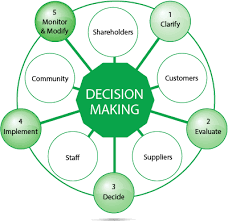
The case scenario, dubbed incident 10 talks about the Smiths family and their five-year old daughter Ana. The Smith’s take their child Ana to their pediatrician to discuss whether or not to vaccinate their daughter. The Smiths’ were concerned about rising number of cases of autism in vaccinated children. They are concerned that vaccinating their child might result in autism-something they would want to avoid at all costs.
Both Ana’s mother and father have prior education/information regarding importance of child vaccination. They have also widely researched this issue through online search on blogs and other social media sites. Being a trained medical professional, Dr. Kerr listened keenly to the concerns presented to him by the Smiths ‘before giving his informed opinion/recommendation about the need to have children vaccinated.
Dr. Kerr told the Smiths’ that the consequences of not vaccinating a child are far too severe compared to vaccinating a child. According to Dr. Kerr, there is no study that directly confirms or link vaccination to autism. On the contrary, the Dr. informed the Smiths’ that there are studies that prove that there is no connection between autism spectrum disorder and vaccination.
Dr. Kerr informed the Smith family that the federal government keeps track of any and all adverse effects that may come from a vaccine. Through the Vaccine Adverse Event Reporting System, the government tracks all vaccines as well as get feedback from people about any incidence from a vaccine. The Dr. explained to the Smiths’ that growing hesitation, opposition and uncertainty about childhood vaccines has created a resurgence of cases of vaccine-preventable diseases and illnesses. In the end, despite Dr. Kerr’s efforts to educate the Smiths’ on the importance of child vaccination. The Smiths’ chose not to vaccinate their daughter.
Ethical Issues in the Case Study
In the case study provided, Dr. Kerr faces a big dilemma after the Smiths’ family refused to vaccinate their daughter. Dr. Kerr knows that the refusal of the Smiths’ to have their daughter Ana vaccinated based on negative rumors is bad for the child. By refusing to have their child vaccinated, the Smiths’ expose their child to dangerous diseases that are easily contained by a simple vaccination process. Refusal to vaccinate Ana exposes her to debilitating illnesses such as measles, mumps, polio, and meningitis.
Measles leads to swelling of the brain that can damage it and result in death while mumps can lead to permanent deafness. On its part, meningitis also leads to deafness and brain damage, while polio leads to permanent paralysis. These are some of the risks that the Smiths’ expose their daughter Ana by refusing to her get vaccinated. The Smiths’ are not only exposing their child to medical implications but also social implications such as exclusion and quarantine during disease outbreaks.
Ethical Decision-Making Model to Analyze the Case Study
Based on the Smith’s case study, moral judgment, moral behavior, and moral awareness are critical components of an ethical decision-making model. Concerning ethical awareness, the doctor, or any other healthcare professional faced with a similar situation must be alive to the existence of a dilemma. Regarding ethical judgment, the doctor must make the right judgments based on the situation at hand (Stenmark, et al., 2021). Ethical behavior is taking the right action to remedy the situation.
Based on the context of the Smiths’ family, it is incumbent upon Dr. Kerr to recognize that the Smiths’ family lack proper information and education regarding child vaccine. The Smiths’ are also not adequately aware of the risks they expose their daughter and other children by refusing to vaccinate Ana. The ethical behavior Dr. Kerr must adopt is to fully convince the Smiths’ to accept to have their daughter Ana vaccinated.
Effective Communication Approach
When she was presented with the problem, Dr. Kerr listened keenly and patiently to the Smiths’ as they narrated their dilemma. She listened all through out to how the Smiths’ arrived at the conclusion not to vaccinate their child Ana. Through active listening, Dr. Kerr was able to get the whole information from the Smiths’ and give them an informed response based on their dilemma.
Apart from keenly listening to the Smiths, Dr. Kerr also rest
